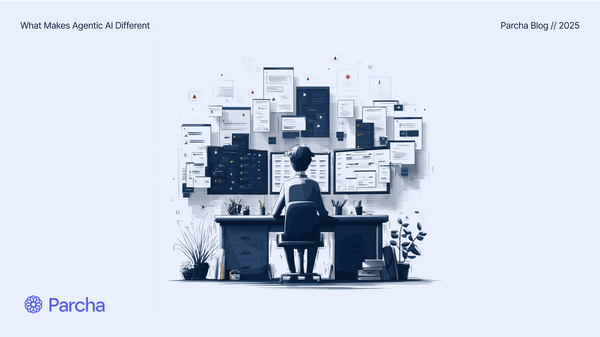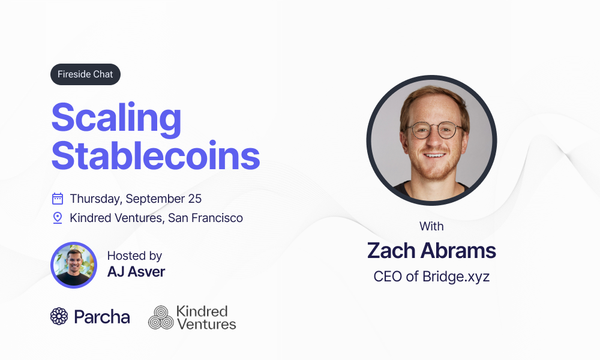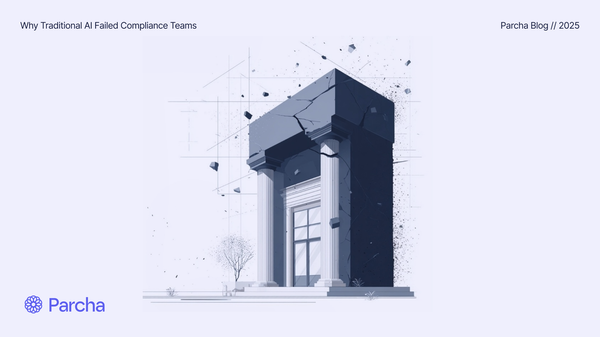Ep 3 - Three Billion Dollars: The Biggest Bank Fine in US History
This episode of Compliance Accelerated explores a significant financial scandal involving TD Bank, focusing on its failure to prevent money laundering, resulting in a record-breaking $3 billion fine in U.S. banking history.
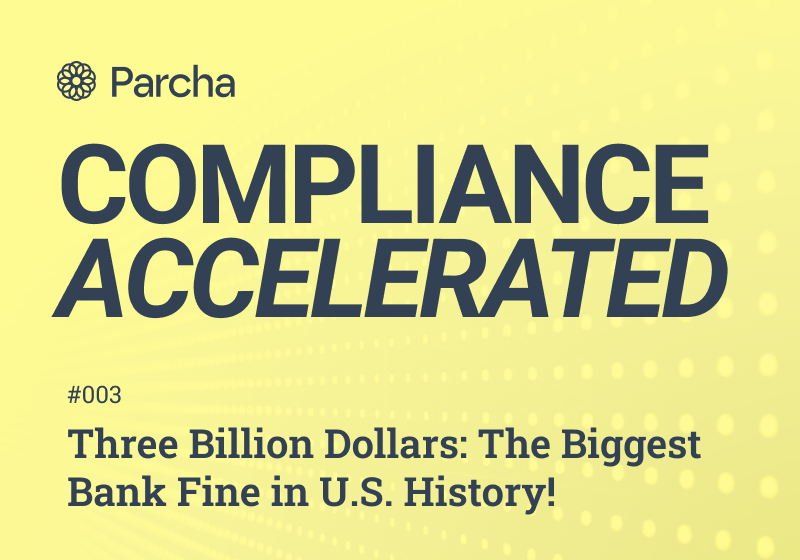
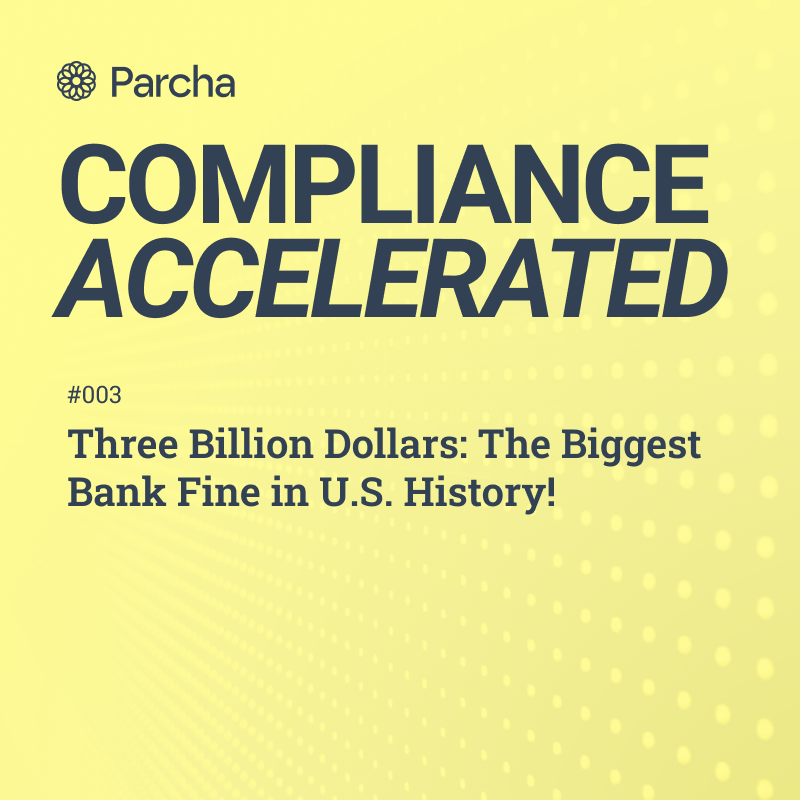
This episode of Compliance Accelerated explores a significant financial scandal involving TD Bank, focusing on its failure to prevent money laundering, resulting in a record-breaking $3 billion fine in U.S. banking history. Hosts Alison Bob discuss the roles of regulatory bodies like FinCEN, DOJ, and OCC, and how a lack of compliance and corrupt activities within the bank led to thousands of unreported suspicious transactions totaling $1.5 billion. The podcast delves into broader implications, the importance of strong AML programs, and how technology, especially AI and machine learning, is transforming efforts to combat financial crime, necessitating a balance of tech innovation and ethical decision-making for a secure financial future.
In this episode
00:00 Introduction to Compliance Accelerated
00:38 The $3 Billion Fine: A Record-Breaking Case
01:18 Understanding the Key Players: FinCEN, DOJ, and OCC
02:04 The Bank Secrecy Act and Its Importance
02:47 TD Bank's Massive Oversights and Violations
03:15 Real-World Consequences of Financial Crimes
03:35 Internal Issues at TD Bank
04:25 TD Bank's Response and Apology
06:52 The Bigger Picture: Financial Crime and Its Impact
08:47 The Role of Technology in Fighting Financial Crime
11:14 Future Implications and Conclusion
Transcript
[00:00:00]
AJ (2): Welcome to Compliance Accelerated, a podcast by Parcha AI. At Parcha, we help banks and fintechs onboard more customers faster with stronger compliance using AI. Our AI is able to accelerate document verification, enhanced due diligence, and AML screening. In this episode, our hosts, Alison Bob discussed TD bank and how its failure to prevent money laundering at a phenomenal scale resulted in the largest fining In US banking history, $3 billion.
We hope you enjoy the episode. Let us know if you have any feedback.
Bob: Okay, so, three billion dollars, with a B. That's the record breaking fine we're diving into today. Slapped on TD Bank, you know, America's most convenient bank. But, uh, seems like that convenience might have had a hidden price tag, huh?
Alice: That's putting it mildly. This isn't just your run of the mill banking blunder.
This is a defining moment, exposing cracks in, [00:01:00] well, the whole system. Right.
Bob: And we've got a mountain of paperwork to sift through. Government documents, articles, expert opinions, the whole shebang. What's the plan for this deep dive, then?
Alice: To equip you, the listener, with the knowledge to see through the fog, understand what went down, and what it means in the grand scheme of things.
Bob: Love it. So where do we start? Maybe with who's involved. We've got FinCEN, DOJ, OCC, sounds like alphabet soup to me.
Alice: It does, doesn't it? But each one's got a big part to play. Imagine FinCEN, the Financial Crimes Enforcement Network, as the detectives. Their job? Ball the money, sniff out the shady dealings.
Bob: Gotcha. They're piecing together the puzzle, so to speak. What about the DOJ and OCC?
Alice: DOJ, the Department of Justice. They're the prosecutors bringing the hammer down when they uncover wrongdoing. And the OCC, the Office of the Comptroller of the Currency. They're the referees, making sure banks are playing by the rules.
You know, keeping things fair.
Bob: Right, which it sounds like TD Bank wasn't exactly doing, especially when [00:02:00] it comes to the Bank Secrecy Act. Give us the lowdown on that. Why is it so important here?
Alice: The Bank Secrecy Act, it's all about making life harder for criminals trying to wash their dirty money.
Financial institutions, like TD Bank, they're required to help the government spot and stop money laundering, basically deputized as the first line of defense against financial crime.
Bob: Okay, that makes sense, but how do they actually do that?
Alice: So one major way is by filing something called Suspicious Activity Reports, or SARS for short.
Think of them as red flags banks raise when they see transactions that just feel off. It could be anything. A sudden flood of cash deposits, dealings with risky countries, that sort of thing. Every transaction leaves a trail, right? And the Bank's Secrecy Act, it gives FinCEN the power to follow that trail.
Without those breadcrumbs, it's almost impossible to track the dirty money.
Bob: And T. E. D. Bank, they weren't exactly leaving a trail of breadcrumbs, were they?
Alice: No, they were not. And it wasn't just a couple of slip ups. We're talking thousands of these suspicious transactions. totaling about 1. 5 billion dollars that [00:03:00] went unreported.
These weren't minor oversights. These were blatant violations ignoring a core pillar of AML regulations.
Bob: Wow, that's a lot of red flags to miss. What kind of transactions are we talking here? Give us the rundown.
Alice: The allegations are concerning, to say the least. We're talking about facilitating drug cartel money laundering, including funds linked to the fentanyl trade.
This is where the real world consequences of financial crime hit home. It's not just numbers on a spreadsheet, it's lives lost, communities torn apart by the opioid crisis.
Bob: That's a chilling thought. But the problems went beyond external bad actors, right? There were issues within TD Bank itself, like employees allegedly taking bribes.
Alice: Unfortunately, yes. The investigation uncovered instances where TD Bank employees allegedly took bribes, gift cards, you name it, to push through these suspicious transactions. Points to a potentially larger problem within the bank's culture. Maybe profits came before ethics and following the rules.
Bob: Paint's a pretty grim picture. [00:04:00] So TD Bank was essentially turning a blind eye, while trillions, literally trillions of dollars flowed through their systems. Can you even fathom that amount of money?
Alice: It's an astronomical sum. Imagine a stack of dollar bills stretching to the moon and back over 200 times.
That's the scale we're talking about here. And when that much money is sloshing around unchecked, it's basically an open invitation for illegal activities.
Bob: Yeah. No kidding. So how did TD Bank respond when they got caught?
Alice: Well, they did release a statement. Their CEO, Harit Mastrani, he actually owned up to their mistakes, even saying, these failures took place on my watch as CEO, and I apologize to all our stakeholders.
Bob: An apology. Hmm. Well, at least it's something. But what are they actually doing to fix this mess? They can't just apologize and call it a day, can they?
Alice: They've admitted guilt. They're saying they'll work with authorities and promise to overhaul their AML program. Hiring hundreds of new specialists, that sort of thing.
But the big question is, will it be enough?
Bob: Alright, we're back. Ready to dig into the [00:05:00] nitty gritty of this TD Bank case. Honestly, the details are kind of what make this whole thing so unsettling. We threw around trillions earlier, but can you even wrap your head around TD Bank seemingly dropping the ball on this scale?
Alice: It's almost too big to grasp. It wasn't a couple missed signals. We're talking a full blown system failure in their AML program. And for years, not just a one time thing. Remember, the Bank Secrecy Act makes banks file those suspicious activity reports, those SARs, for a reason. It's the frontline defense against money launderers.
Bob: Right, like those SARs are the canary in the coal mine, right? Yeah. Early warning to tip off the authorities. But it sounds like TD hit the snooze button on those alarms, and repeatedly.
Alice: Exactly, they just didn't file thousands of reports on transactions adding up to about 1. 5 billion dollars. This wasn't some paperwork error, this was deliberate, and it potentially let criminal networks run wild.
Bob: Okay, so, they're not filing the reports, but was there anything wrong with the info they hand over? Vaguely remember [00:06:00] something about misleading details or delays?
Alice: You're right on the money. Turns out, they were constantly late filing those currency transaction reports, the ones for big cash moves. And sometimes, they even fudged the information, gave misleading stuff.
Imagine trying to solve a puzzle, but with pieces missing and day, the picture's warped. Makes it near impossible for the authorities to connect the dots and follow the money trail.
Bob: So not only were they not reporting the shady stuff, they were making the few reports they de defile even harder to use.
Boggles the mind how this went on for so long.
Alice: That's the million dollar question a lot of experts are asking. How could this go unnoticed for over a decade? Some folks think TD Bank in their rush to grow. Maybe they push compliance to the back burner. Others say maybe their AML teams were stretched thin, not enough expertise.
Whatever the reason, the fallout was huge.
Bob: And that fallout. It goes way beyond bank's bottom line, right? We're talking about the real world harm of financial crime. Communities [00:07:00] ravaged by the opioid crisis. Victims of trafficking. These aren't victimless offenses. There are real people hurt by this.
Alice: You're absolutely right. What's really worrying is how intertwined all these illegal activities are. This case has shown a light on how things like drug smuggling and human trafficking, they all come together in the global financial system.
Bob: Like a spiderweb and TD Bank not doing their due diligence, it just gave those threads a place to connect and get stronger.
Remember reading about those peer to peer transactions, often a sign of human trafficking, slipping through because of their lax oversight. Heartbreaking.
Alice: It really is. Highlights how vital strong AML programs are and a culture of actually following the rules inside these financial institutions. This isn't just a slap on the wrist for TD Bank, it's a wake up call for the whole industry.
Bob: So what happens next? TD Bank says, sorry, Promises to do better. What's the bigger picture here? Is this a turning point in how we tackle financial crime?
Alice: Could be. This whole thing has sent shockwaves through the [00:08:00] financial world, got regulators rethinking their approach.
Bob: Are we talking stricter rules, harsher punishments?
What's gonna change?
Alice: We're already seeing a push for both. More and more folks are saying those big fines while they grab headlines, they might not actually scare banks straight. Some argue it's just the cost of doing business, like a parking ticket for these huge companies.
Bob: So what's the alternative?
What'll actually make a difference? Feels like we've been having this same conversation for years, and here we are again.
Alice: That's the million dollar question, right? No easy answer. But this TD case has shown we need a multi pronged attack. Stronger enforcement of the rules we've got is key, for sure. Close those loopholes criminals exploit.
But beyond that, there's this growing realization we can't just punish after the fact. We need to prevent it, make compliance part of their DNA. And that's where technology comes in.
Bob: Ah, yes, technology. Double edged sword if there ever was one, eh? Helps criminals, but can also help catch them. We'll get into that more in a bit, but first, back to those restrictions on [00:09:00] TD Bank.
Those seem like a big deal, like, maybe regulators are changing their tune?
Alice: They're definitely noteworthy. Remember that asset cap we talked about? Putting a limit on how much TD Bank can grow? That's not just a slap on the wrist, it directly hits their profits. Sends a clear message to other banks, mess up.
And it'll cost you, not just in fines, but in your future potential, too.
Bob: So, hit them where it hurts. impact their ability to rake in the dough.
Alice: Kinda, yeah. Drive home the point that ignoring the rules isn't just bad ethics, it's bad for the bottom line. Full stop. But, like you said, tech's got a big part to play in this whole fight against financial crime.
It's evolving fast.
Bob: Alright, let's crack that open. We're talking AI, machine learning, big data, all those buzz words. Yeah But how are they actually being used to fight the bad guys?
Alice: It's a really cool, rapidly changing field. One of the most promising areas is in that transaction monitoring we talked about.
The very thing that tripped up TD Bank. AI. Machine learning. They can analyze mountains of transaction data in real [00:10:00] time now. Flagging stuff that would slip through the cracks before.
Bob: So like having a super detective working 24 7, fifting through all that data to pick out those tiny hints that something's fishy.
Alice: Exactly. And these systems, they don't just spot this suspicious stuff. They learn, they adapt, get better at spotting new tricks that criminals come up with. It's a game changer for making sure banks are following the AML rules. Sounds like
Bob: it. What about beyond just monitoring transactions? Where else is this tech being used?
Alice: Another exciting area is KYC, Know Your Customer, something TD Bank struggled with. New tech like biometrics, facial recognition, digital ID checks. They're making it way harder for criminals to hide behind fake names.
Bob: Makes sense. Always seemed like a huge weakness, someone opening an account, moving money, all under a fake name.
These new technologies, they're not. It's like they're patching those holes.
Alice: They are, but it's a constant race. Tech evolves. So do the criminal's methods. Can't let our guard down.
Bob: Constant vigilance. Gotta stay ahead of the game. It's a lot to wrap your head around. But [00:11:00] before we get lost in the weeds of all this tech, let's take a breather.
When we come back, we'll explore the wider implications of this tech revolution in stopping financial crime, and what it means for the future of banking itself. Stick with us. And we're back. Before the break, we were knee deep in the world of AI and its fight against financial crime. A lot to process, but it feels like things are really shifting now.
Alice: 100%. We're seeing this convergence, right? Regulatory pressure's ramping up, public's more aware, and then you've got these tech leaps and bounds. It's all changing how we tackle financial crime.
Bob: So it's not just about catching the crooks after they've made off with the loot. It's about predicting their next move.
Stopping them before they even start.
Alice: You got it. Think about it, the old AML systems, they were reactive, basically rules based. And criminals, they're adaptable, they caught on. But now, AI, machine learning, that's changing the game. We're talking analyzing huge amounts of data, spotting patterns humans might miss, [00:12:00] and doing it all in real time, adapting as new threats pop up.
Bob: Like giving these financial institutions a sixth sense almost. They can sniff out and shut down criminal activity before it even goes down.
Alice: In a way, yeah. But, and this is important, it's not JST about having the fanciest tech, it's how you use it. Banks, they need the right infrastructure, solid risk assessment plans, and a culture of actually using data to make decisions.
Bob: So a blend of cutting edge tech and good old fashioned human know how.
Alice: Engo. Tech provides the tools, but humans still got to interpret the data, make the judgment calls, make sure it's all being used ethically, responsibly.
Bob: Makes sense. We're not handing over the keys to the robots, just giving our analysts and investigators a leg up against these increasingly sophisticated criminal networks.
Alice: Exactly. And here's something else fascinating. This tech, it can also boost collaboration between the institutions and law enforcement. Oh. How so? Imagine a system where banks securely share intel on suspicious [00:13:00] activity, but in real time. That kind of data sharing, that's huge for connecting the dots, spotting new trends, and busting these criminal rings before they even get started.
Bob: Now that's a game changer. Instead of everyone working in their own silos, banks and law enforcement, they become a united front against financial crime.
Alice: Exactly. And the best part? These technologies, they can actually help cut down on those false positives where legit transactions get flagged as suspicious.
Saves time, money, and your average Joe doesn't get caught in the crossfire.
Bob: So, a win win. Better crime fighting A& D, a smoother ride for customers.
Alice: Potentially, yeah. But let's not forget, tech is just one piece of the puzzle. Strong regulations, ethical considerations, transparency, accountability.
Those are all key to a financial system that's both innovative and secure.
Bob: Finding that balance, that's the sweet spot, right? Harnessing the power of technology, but not losing sight of the human element. The need for ethical decision making and making sure someone's keeping a watchful eye on things.
Alice: [00:14:00] Couldn't have said it better myself. It's about shaping a future where tech helps us build a financial system that's fairer, more transparent, more secure for everyone.
Bob: Now that's a future worth fighting for. This has been an incredible deep dive. Really eye opening. Any closing thoughts for our listeners before we wrap up?
Alice: Just this. The fight against financial crime, it never ends. It's always evolving. We've got to stay vigilant, keep adapting, embrace new tech and strategies. But if governments, institutions, tech companies, even individuals, if we all work together, we can create a system that fosters innovation, grows the economy, and protects us from those trying to game the system for their own benefit.
Bob: Well said. Powerful way to end it. Thank you for joining us for this deep dive into TD Bank AML and what the future holds for fighting financial crime. Hope you found it insightful. Until next time, stay curious.


